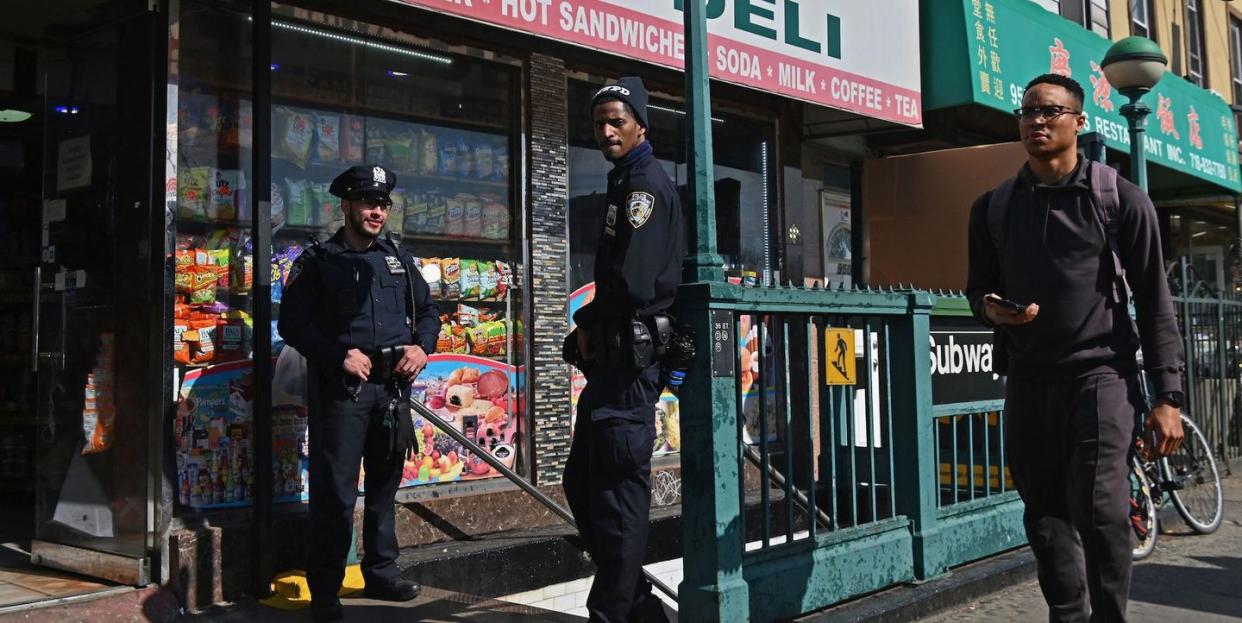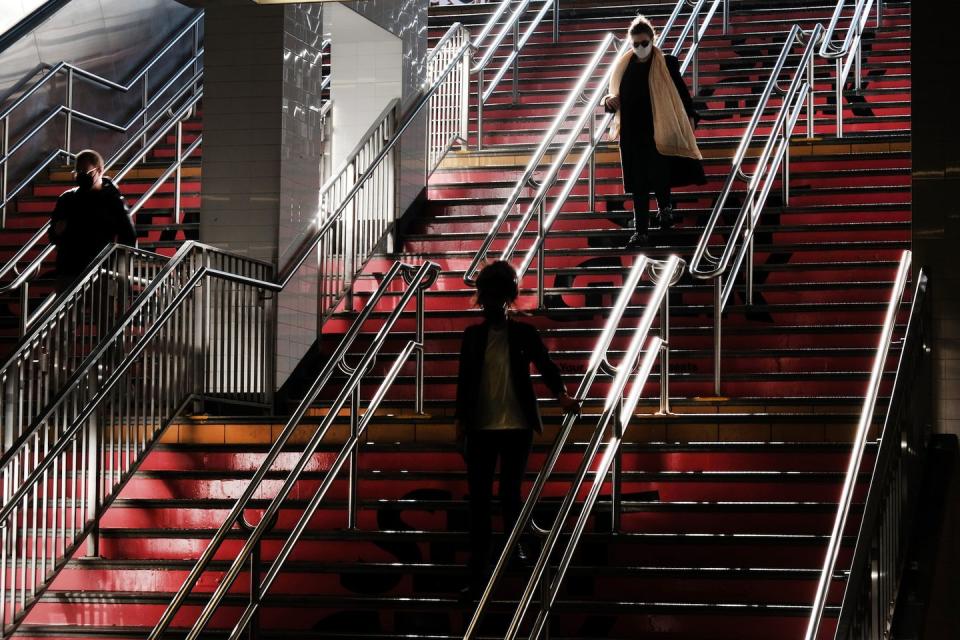We Don't Need More Metal Detectors, Facial-Recognition Software, or Security Theater

- Oops!Something went wrong.Please try again later.
"What about metal detectors in the subways?" asked more than one local news anchor, in varying formulations, after New York saw a horrific mass shooting during morning rush hour on Tuesday. Maybe they were just trying to fill airtime. Maybe it was a natural response in the post-9/11 world, where one-off events have led to the construction of massive architectures of security. Something terrible and frightening happened? Surely there is some power we could give the state to stop it ever happening again. Surely we can reclaim order from the chaos, if only we can find a new reason for people to wait in line.
"Metal detectors in the subway" is the kind of idea you'd have if you don't ride the subway. There are 472 stations throughout the New York City subway system and millions of riders a day. How many detectors would you need to cover them all? How are you going to line people up every single day on their morning commutes? Doesn't this just create a mass of people at the entrance, packed together with no easy escape if something goes wrong outside the magic detectors? Will we take off our shoes? Take laptops out of our bags? Also, have you ever met anyone from New York?
After Mayor Eric Adams seemed to entertain the idea during a TV hit, his staffer Maxwell Young took to the Tweet Machine to explain that Adams did not mean "airport-style metal detectors," he was floating the use of "innovative technology." (This is a similar line to the one he's taken on school security.) City Hall press secretary Fabien Levy added Adams does not have in mind anything that would "delay individuals or cause any inconvenience; you just walk by something." Even given that New York State, not the city, controls the subway, it's still worth asking what this technology is. What are we talking about here? Specifics have been in short supply.

We got one concrete suggestion from the Manhattan Institute courtesy of Rafael Mangual, who cited the city's crime surge to demand the expansion of "police resources—especially with respect to the NYPD’s investigative capabilities—which include technological resources like CCTV cameras and facial recognition software." The NYPD already gets more than $10 billion a year in resources, equivalent to a midsize country's military expenditure. This is apparently insufficient, to the point that Tuesday's gunman is still on the loose despite reportedly dropping his credit card and U-Haul keys at the scene. If only we'd given them facial recognition software, currently all the rage over in China. If you're wondering, the think tankers of the Manhattan Institute are normally not exactly fans of the way they do things over in the People's Republic—and with good reason! But it appears in this case, the problem is not with giving huge surveillance powers to the state at the expense of individual liberty and privacy. It's all good if you think the people you're giving it to are the good guys!
(Speaking of which, the gun rights groups have already sounded off, suggesting all this nastiness could have been avoided if New York allowed citizens to carry concealed firearms in public. In this scenario, the shooter would have thrown a smoke canister on the train car and started shooting, only for Good Guys With Guns to fire back and bring him down without injuring any bystanders on the crowded rush-hour train. They point to an active Supreme Court case, New York State Rifle & Pistol Association v. Bruen, in which the conservative majority may well throw out a 110-year-old New York State law that prevents almost anyone from getting a concealed-carry permit. So much for states' rights. If you want to live your John Wayne fantasy, move to Ohio. We're good, thanks!)
"You never make decisions when you're grieving, mourning, emotional, and when you're not being as objective as you should be because of external factors," Rep. Barbara Lee, the only member of Congress to vote against the war in Afghanistan, told me last year. "I think I said on the floor of the House that we need to step back, think this through. People elect us to do our job, not to go along to get along."
It's difficult, but maybe we ought to consider not radically changing our lives in response to a single heinous and horrific act. I, for one, have faith that the NYPD will catch the suspect without the use of facial-recognition technology, just as police have done for time immemorial. The crime rate on public transit is up in recent years, but like violent crime overall in the city, it's well below the bad old days. (New York is still among the safest big cities in America.) Surely we can address this without infringing on the liberty and dignity of citizens in the interest of what often amounts to security theater. The mayor's surge of officers patrolling the system hasn't shown results yet, and maybe it won't. But we'll need to find a way that does not involve more gadgets in the subway. Spend the money on the signal system. After horrors like these, we are asked to carry on. Get on the train, keep your wits about you, look out for others in need of help, and go to work.
You Might Also Like

